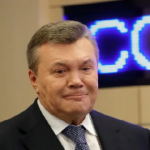Pope Francis has said that pontiffs resigning instead of ruling for life should not become a “fashion” in the Roman Catholic Church and happen only in truly exceptional circumstances.
The comments, made in private conversations with fellow Jesuits during his recent trip to Democratic Republic of Congo, were a shift away from previous remarks in which Francis said that longer life spans and medical improvements could make retired popes an institution in the Church.
La Stampa newspaper published the comments on Thursday in an article by Father Antonio Spadaro, a Rome-based Jesuit priest who attends the meetings and writes about them afterwards with the pope’s permission.
On Feb. 2 in Kinshasa, Pope Francis was asked about media reports that he could resign.
He repeated a comment first made to a Spanish newspaper in December that several months after his election in 2013 he gave a Vatican official a resignation letter to be used in case one day he suffered a severe medical condition that would leave him permanently unconscious and unable to make decisions.
“This does not, however, in any way mean that popes retiring should become, let’s say, a fashion, a normal thing,” he said.
“I believe that the papal ministry should be for life. I don’t see a reason why it should not be this way … historic tradition is important. If instead we listen to gossip, then we would have to change popes every six months,” he said.
In 2013, Pope Benedict, citing frail physical and mental health, became the first pontiff to resign in 600 years.
He lived for nearly 10 more years, and, according to top aides, remained lucid until a few days before his death last Dec. 31.
Benedict continued writing and received visitors, who sometimes disclosed what he said, feeding a conservative, nostalgic Catholic faction unhappy with Francis’ papacy.
His nearly 10 years as pope emeritus were one of the most divisive periods in modern Church history. Although Francis often compared having Benedict living in the Vatican to having a grandfather in the house, a book by Benedict’s closest aide exposed strains while two men wearing white lived in the tiny city-state.
The tone of Francis’ comments to the African Jesuits was in a marked contrast to that which Francis used in the past when discussing the possible resignations of popes, including himself.
Returning from Canada last July, Francis said increasing age and ailments, including a knee problem that forces him to use a cane and wheelchair, made him realise that he had to slow down “or decide to step aside”. In August he said popes who resign are humble.
In 2014, Francis said the resignation of Benedict a year before should not be seen as “a unique case” and that by stepping down, Benedict had become “an institution who opened a door, the door of emeritus popes”.
In his conversation with the African Jesuits this month Francis said his own resignation for health reasons “is not on my agenda for the moment”



